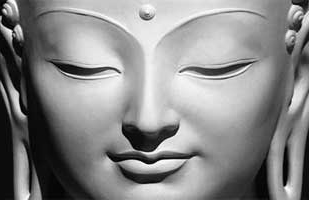
Chapter IV - PUPPHA VAGGA - Flowers

THE NOBLE DISCIPLE WILL CONQUER THIS SELF
Ko imam pathavim vijessati yamalokan ca imam sadevakam
Ko dhamma padam sudesitam kusalo puppham'iva pacessati.
Sekho pathavim vijessati yamalokan ca imam sadevakam
Sekho dhamma padam sudesitam kusalo puppham' iva pacessati.
Who will comprehend 1this earth (self),2and this realm of Yama,3and this world4 together with the devas?5 Who will investigate the well-taught Path of Virtue,6 even as an expert (garland-maker) will pick flowers?
A disciple in training ( sekha,7 will comprehend this earth, and this realm of Yama together with the realm of the devas. A disciple in training will investigate the well-taught Path of Virtue, even as an expert (garland-maker) will pick flowers.
IV: 01 Concentrate on your body
Once, there lived in Savatthi the son of a banker. This young man asked the bhikkhu who used to come to his house for alms what he should do to be liberated from the ills of life. The bhikkhu instructed him to divide his property into three parts; one part to do business with, one part to support the family and one part to give in charity. He did as he was told and again asked what should be done next. So he was further instructed: firstly, to take refuge in the Triple Gem (Buddha, Dhamma and Sangha) and to observe the five precepts; secondly, to observe the ten precepts; and thirdly, to renounce the world and enter the Holy Order. The young man complied with all these instructions and became a bhikkhu.
As a bhikkhu, he was taught theAbhidhamma(Buddhist psychology) by one teacher and the Vinaya (rules of conduct) by another. Being taught in this way, he felt that there was too much to be learnt, that the disciplinary rules were too strict and too many, so much so that there was not enough freedom in the way of life of a bhikkhu. He thought that it might be better to return to the lay life. As a result of doubt and discontentment, he became unhappy and neglected his duties. He also became thin and weak. When the Buddha came to know about this, he admonished the young bhikkhu, If you can only control your mind, you will have nothing more to control; so guard your mind.
The Buddha admonished him that as the mind is easily excitable and fickle, one should control one's mind in a proper manner wherever one is.
Notes:
- Vijessati = attano nanena vijanissati = who will know by one's own wisdom? (Commentary).
- That is, one who will understand oneself as one really is.
- By the realm of Yama are meant the four woeful states — namely, hell, the animal kingdom, the Peta Realm, and the Asura Realm. Hell is not permanent according to Buddhism. It is a state of misery as are the other planes where beings suffer for their past evil actions.
- Namely, the human plane and the six celestial planes. These seven are regarded as blissful states (sugati).
- Devas, lit., sporting or shining ones. They are also a class of beings who enjoy themselves, experiencing the effects of their past good actions. They too are subject to death.
- Dhammapada. The commentary states that this term is applied to the thirty-seven Factors of Enlightenment (Bodhipakkhiyadhamma). They are:
- The four Foundations of Mindfulness (Satipatthana) — namely, 1. contemplation of the body ((kayanupassana) 2. contemplation of the feelings (vedananupassana ) 3. contemplation of thoughts (cittanupassana) and 4. contemplation of phenomena (dhammanupasana ).
- The four Supreme Efforts (Sammappadhana) — namely, 1. the effort to prevent evil that has not arisen 2. the effort to discard evil that has already arisen 3. the effort to cultivate unarisen good and 4. the effort to promote good that has already arisen.
- The four Means of Accomplishment (Iddhipada) — namely, will (chanda), energy (uiriya), thought (citta), and wisdom (vimamsa).
- The five Faculties (Indriya) — namely, confidence (saddha), energy (viriya), mindfulness (sati), concentration (samadhi), and wisdom (panna).
- The five Forces (Bala), having the same names as the Indriyas.
- The seven Constituents of Enlightenment (Bojjhanga) — namely, mindfulness (sati), investigation of the Truth (Dhammavicaya), energy (viriya), joy (piti), serenity (passaddhi), concentration (samadhi), and equanimity (upekkha).
- The Eightfold Path (Atthangikamagga) —namely, right views (samma ditthi), right thoughts (samma samkappa), right speech, (samma vaca), right actions (samma kammanta), right livelihood (samma ajiva), right endeavour (samma vayama), right mindfulness (samma sati) and right concentration (samma samadhi).
- The term sekha lit., one who is still undergoing training, is applied to a disciple who has attained the first stage of Sainthood (Sotapatti = Stream-winner) until he attains the final Arahatta fruit stage. When he totally eradicates all fetters (samyojana) and attains the fruit stage of an Arahant, he is called an Asekha, as he has perfected his training.
It is an asekha disciple who understands himself and the whole world as they really are. There is no graceful English equivalent for this difficult Pali term.
'Adept' = 'one who has attained' may be suggested as the closest rendering.

Editor for Buddha brothers: Matthew Laird Acred
If you should encounter any bugs broken links, or display errors just email us.
Buddha brothers has been running since Aug 2010 and can continue to run with your kind help!
If you love our website please donate so we can make this site even better !!